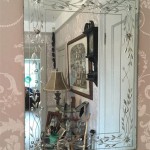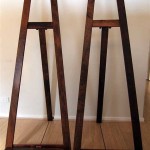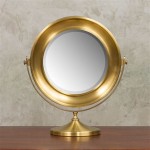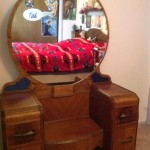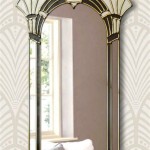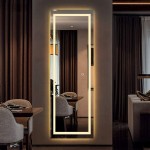Best Direction To Place A Mirror
Mirrors, beyond their functional use for reflection, play a significant role in interior design, influencing both the aesthetics and perceived energy flow of a space. Their strategic placement can enhance natural light, create an illusion of spaciousness, and contribute to the overall ambiance of a room. Understanding the principles of light reflection and the traditional practice of feng shui can guide optimal mirror placement for maximizing these benefits.
One of the most common and effective uses of mirrors is to amplify natural light. Positioning a mirror opposite or adjacent to a window allows it to capture and reflect incoming sunlight deeper into the room, brightening darker corners and reducing the need for artificial lighting. This is particularly beneficial in smaller rooms or spaces with limited natural light sources. The size of the mirror also plays a role; larger mirrors reflect more light, while smaller ones can be used for targeted brightening of specific areas.
Mirrors can create an illusion of spaciousness, making a room appear larger than its actual dimensions. Placing a large mirror on a wall perpendicular to a long, narrow hallway, for example, can visually widen the space. Similarly, placing a mirror at the end of a small room can create the illusion of depth. This technique is valuable in compact apartments or areas where expanding the physical space isn't feasible.
The principles of feng shui offer further insights into mirror placement for optimizing energy flow, referred to as "chi," within a home. Feng shui emphasizes the harmonious interaction of elements within an environment. Mirrors, considered powerful tools in feng shui, can be used to redirect and enhance this energy flow.
According to feng shui, mirrors should not be placed directly opposite a door. This is believed to reflect the incoming energy back out, preventing it from circulating within the space. Instead, mirrors are often positioned on walls perpendicular to the door, allowing the energy to flow smoothly into the room. Specific considerations also apply to different rooms within a home.
In bedrooms, feng shui generally discourages placing mirrors directly opposite the bed. This placement is thought to disrupt sleep by reflecting energy and potentially creating a sense of unease. If a mirror is necessary in the bedroom, it's recommended to position it so it doesn't reflect the bed. Alternatively, smaller mirrors or mirrored closet doors can be considered.
In dining rooms, mirrors are often strategically placed to reflect the dining table. This is believed to symbolize abundance and prosperity, doubling the visual representation of food and gatherings. It also creates a more lively and sociable atmosphere by reflecting the activity and conversation around the table.
Bathrooms benefit from mirrors both functionally and aesthetically. Beyond their essential role in personal grooming, mirrors can enhance the brightness and perceived size of a bathroom. Placement above the vanity is standard, but larger mirrors or strategically placed smaller mirrors can further contribute to the overall design and functionality.
In hallways, mirrors can be used to create a sense of flow and movement. Long, narrow hallways can benefit from mirrors placed on one or both side walls to visually expand the space. Mirrors placed at the end of a hallway can add depth and draw the eye, creating a more welcoming entrance.
When considering mirror placement in any room, the reflection itself is crucial. Mirrors should reflect pleasing views, such as artwork, plants, or a well-maintained garden. Avoid placing mirrors where they reflect clutter, unfinished areas, or other visually unappealing elements. This principle contributes to a positive and harmonious atmosphere within the space.
The shape and style of the mirror also influence its impact on the room. Round mirrors are often associated with a softer, more organic feel, while rectangular or square mirrors offer a more structured and formal aesthetic. Ornate frames can add a decorative touch, while frameless mirrors provide a sleek and minimalist look. Choosing the right shape and style depends on the overall design aesthetic of the room and the desired effect.
By considering both the practical aspects of light reflection and the principles of feng shui, individuals can strategically place mirrors to optimize their benefits within a space. These benefits range from enhancing natural light and creating an illusion of spaciousness to promoting a positive energy flow and enhancing the overall aesthetic appeal of the room.
Furthermore, thoughtful consideration should be given to the size and shape of the mirror, as well as the view it reflects. By carefully planning mirror placement, individuals can effectively utilize these versatile design elements to create a harmonious and visually appealing environment.

Mirror Vastu Right Direction Of In Homes And Offices

Vastu For Mirrors Reflect Harmony And Balance

Mirror Positioning According To Vastu Shastra A Brief Understanding

Best Mirror Position In Bedroom As Per Vastu Designcafe

Best Mirror Position In Bedroom As Per Vastu Designcafe

The Feng Shui Of Mirror Placement In Your Bedroom City Mattress

5 Mirror Vastu Placement Tips For A Happy Home Livspace

Best Mirror Position In Bedroom As Per Vastu Designcafe

Mirror Vastu Right Direction Of In Homes And Offices

Ideal Direction For Mirrors According To Vastu

